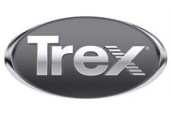Southwest
Crossing the Line: Dixieline Lumber Co. surmounts geographic, political, and cultural barriers at a distribution center that borders both the Pacific Ocean and Mexico.
Oh, the things Luciano Ponce has done for love.
Born and raised in Los Angeles, Ponce was 20 years old and working at a wholesale lumber operation in northern California when he decided to visit his parents’ ancestral home in Guadalajara, Mexico. There he met a local girl named Mariana, fell in love, and decided to get married. There was just one problem: she couldn’t legally return with Ponce to the United States.
So Ponce quit his job, moved his bride to Tijuana, and got a job at Dixieline Lumber & Home Centers’ distribution center in National City, Calif. Ponce lives a 10-minute drive south of the border, while Dixieline’s yard is about 10 minutes north. In between is the San Ysidro Border Inspection Station, a 24-lane chokepoint that can take a northbound traveler 60 to 90 minutes to cross on a typical morning, and longer when things don’t move smoothly.
“It got to the point where I’d have to leave my house at 2 a.m. to be sure I’d be here by 5 a.m.,” Ponce says. “If I got here early, I’d sleep in my car.”
Ponce’s ordeal stopped this summer when he qualified for a special pass that slashes time at the border to just five minutes. But for about 20 other Dixieline employees–most of them Mexican nationals with green cards–the wait continues.
Dixieline exemplifies a border region where things are neither as divided nor as homogenous as they might seem. While most of the loading yard workers in National City are U.S. citizens of Latino ancestry plus a few Mexican nationals, all their business and walkie-talkie conversations are in English.
On the other hand, when company officials speak to the group at monthly safety meetings, they make certain their points get across by speaking in Spanish. Company memos on health and retirement plans are published in two languages, and Dixieline may be the only lumberyard that buys health care services in Baja, Mexico, as well as in San Diego County.
Cross-border issues come naturally to Dixieline president Joe Lawrence. The son of missionaries, he grew up in Baja as a sort of double minority: he was an Anglo-American in Mexico living in a region looked down upon by other Mexicans. He’s familiar with a working environment in which lunch with the crew might well be a couple of beef tongue tacos. “From my standpoint, the Hispanic has a tremendous work ethic,” he says.
That work ethic gets tested in a National City operation that, unlike the other small, remote yards profiled in this series, is the nerve center for a company that did $365 million worth of sales last year. The 20-acre distribution and millwork center includes a wharf along San Diego Bay, where workers unload 6 million board feet of lumber shipped down from Oregon every three weeks. There’s also a rail line on site, and both Interstate 5 and the South Bay Freeway roar by just beyond the gates. Goods are moving from 5 a.m. to midnight so this Dixieline center can deliver to jobsites typically 50 to 75 times a day.
Branch manager Paul Corso, a 12-year veteran at United Parcel Service, runs the distribution operations, and he constantly tweaks systems and jobs to make the facility’s 144 workers more efficient. He’s a big fan of developing better ways to measure performance.
One he particularly likes is “footage per on-road hour,” or the amount of board feet of lumber that a truck is carrying while out of the yard and on the road. It’s based on the notion that a truck doesn’t earn money when it’s sitting in the yard, so Dixieline should do what it can to load that truck as quickly as reasonably and safely possible, and get it moving to the next jobsite. To help reach that goal, a notice board at the dispatch center includes a line showing the target and actual times that trucks spend waiting in the yard each morning. Drivers make up to three deliveries each per day. Corso has gone so far as to try to determine whether drivers seek out people as soon as they reach a jobsite rather than wait for customers to come to them.
“We like to look at ourselves as a competitor,” Corso says, a particularly apt analogy given the large picture of baseball Hall of Famer Ted Williams hanging in his office. “We want to win at what we do.”
Victory can be sweet particularly when one remembers that Corso is operating in a county with space limits. Ocean, mountains, a sprawling Marine Corps base, and la frontera border it. But as Ponce and his bosses have shown, with both creativity and patience you can overcome barriers.
–Craig Webb


